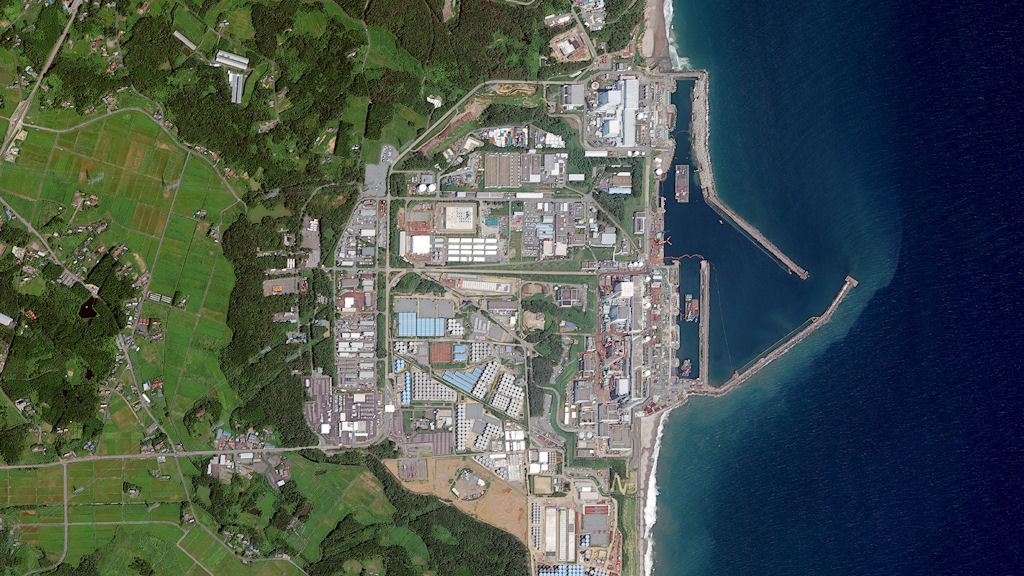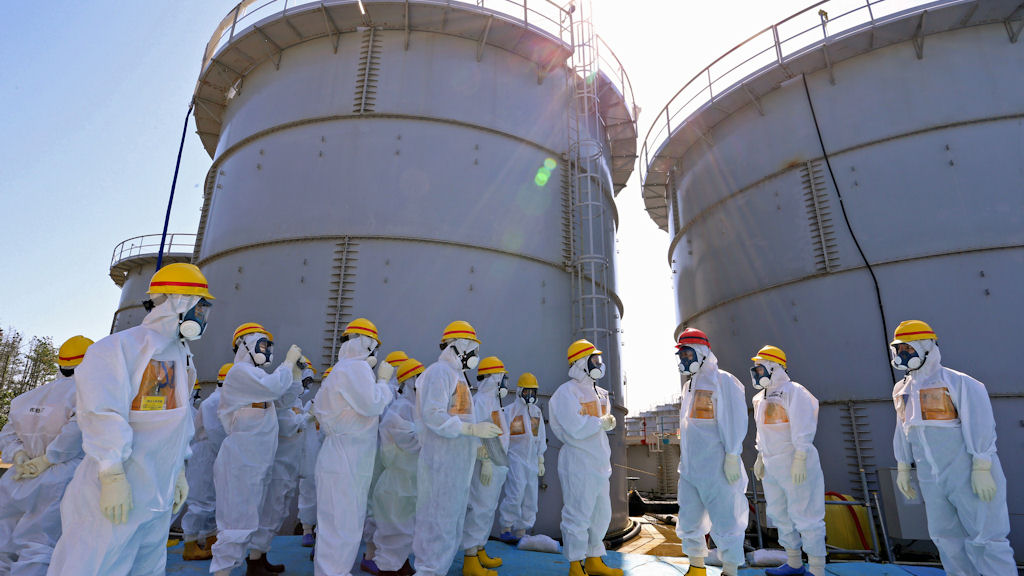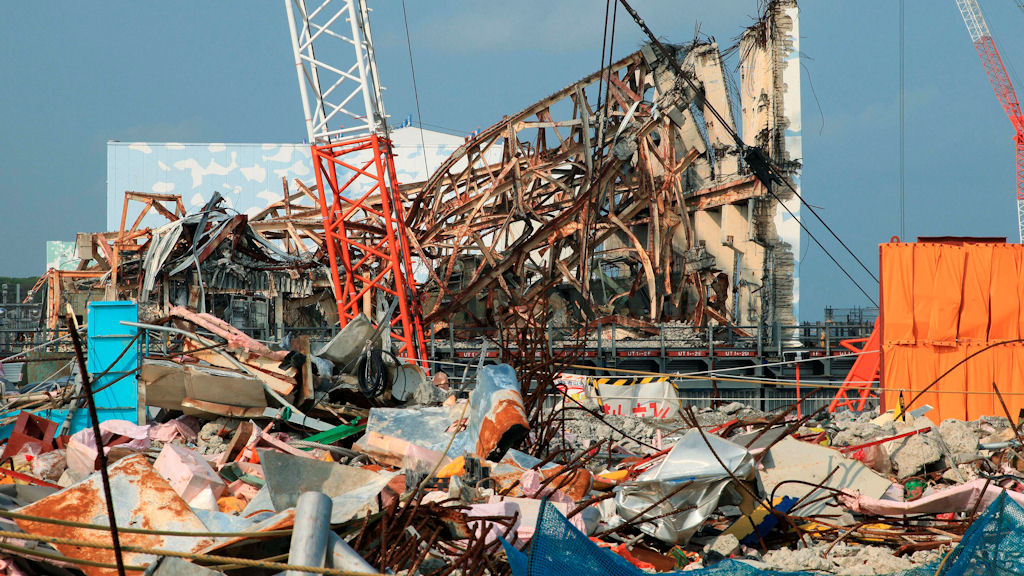What is happening at Fukushima?
The world is responding to Japan’s call for help at the stricken Fukushima nuclear plant. But with reports of leaks, contamination and a risky new operation, Channel 4 News asks: is it too late?

Last week, the Japanese government finally admitted what many feel it should have done more than two and a half years ago: it cannot cope with one of the world’s worst nuclear disasters of all time alone.
“We are wide open to receive the most advanced knowledge from overseas to contain the problem,” Prime Minister Shinzo Abe said, in English, at an energy conference in Kyoto. “My country needs your knowledge and expertise.”
Reports of leaks, radiation exposure and other issues, from rats gnawing cables to workers mistakenly removing pipes and exposing six colleagues to radioactive water, are pouring out of the stricken Fukushima Dai-ichi nuclear plant in north east Japan as fast as the radioactive water itself appears to be leaking into the sea.
My country needs your knowledge and expertise. Japanese PM Shinzo Abe
And the international community has responded: an International Atomic Energy Authority (IAEA) mission has landed in Japan to assess the situation. The agency will also monitor levels of radiation in the ocean and plans another trip to the plant in the next few months.
Separately, Channel 4 News can reveal that the Japanese government and the plant operator, the Tokyo Electric Power Company (Tepco) have already quietly drafted in an international body of experts to try to contain the situation. The International Research Institute for Nuclear Decommissioning (IRID), set up about a month ago, was launched with a press conference in Japan but almost no international fanfare.
Situation ‘not under control’
Experts in Japan say it is about time the situation is taken seriously, after months of denials and obfuscation from the authorities.
Professor Komei Hosokawa, who wrote the Fukushima section in the 2013 World Nuclear Report, told Channel 4 News: “The situation is not under control. Almost every day new things happen, and there is no sign that they will control the situation in the next few months or years.”
Read more: Why next month is Fukushima's biggest since 2011

There are a number of ongoing issues at the Fukushima plant, which went into meltdown following the 2011 earthquake and tsunami in Japan – short term and long term.
Most urgently, the plant operators have failed to get leaks of radioactive water under control. In August, 300 tonnes of radioactive water leaked from a steel tank, prompting Japan’s nuclear regulator to raise the severity of the crisis to a Level 3 “serious incident” on the International Nuclear and Radiological Event Scale (INES). To put that into context, the meltdowns at the reactors after the 2011 crisis were level 7, the highest rating – but level 3 is still the most serious event at Fukushima since the initial disaster.
There are also ongoing daily leaks at the site, the plant’s operator has admitted – a problem the Japanese government has proposed dealing with by building a £300m ice wall. The implementation of this plan is still under discussion.
Read more from Channel 4 News on Fukushima
The water itself is coming from two places – the three melted down reactors have to be kept cool, so water is being pumped in to manage this. This radioactive water is mixing with groundwater on the site, due to structural damage to the reactor buildings, and leaking. Separately, the radioactive water is being stored in tanks on the edge of the site – which have also been prone to leaks.
Longer term, these three reactors need a strategy for decommissioning them and making them safe. The damaged fourth reactor has spent fuel, in an unknown state, which needs to be moved as it is currently not stored in a safe way in the unstable reactor building.
‘It’s not panic’
Professor Hosokawa, a board member of Greenpeace in Japan, is openly working with an anti-nuclear citizens group to propose other solutions for dealing with Fukushima. But even those who believe the situation is under control – or at least, that it will be soon – admit that there is still a sense of “chaos” at the plant.
Dr Adrian Simper, of the UK’s Nuclear Decommissioning Authority, recently chaired a visit of the new international expert body, IRID, to Fukushima.
He told Channel 4 News: “There is a sense in which it is chaos, in that there are a lot of things to be done, and a lot of things that can go wrong.
“It’s not a nice clean operation like it was designed to be, because nature has intervened. Tepco is clearly struggling to come to terms with that operationally, but they will get there.”

‘The new normal’
Tepco has not yet responded to Channel 4 News requests for comment on the situation. But Dr Simper denies that the recent flurry of international interest in Fukushima is a sign of panic, and stressed that no-one was taking over from Tepco – saying in fact that IRID was set up with Tepco’s backing.
“It’s not panic, not ‘let’s call in the nuclear red team’,” he said. “Look at the kind of people involved. Look at my CV. There is no emergency management on it. What I do is strategy and planning.”
He described the situation at Fukushima as “the new normal”.
“It’s not a nuclear power plant having a really bad day. Think of this as a difficult decommissioning site having a fairly average day. It’s a change of mindset in that there is now no threat to people or the environment. But that doesn’t mean you walk away.”
In fact, contrary to walking away, November could see one of the most dangerous operations undertaken at the plant since the initial disaster: moving the spent fuel from the fourth reactor. It’s a process which, if it goes wrong, could cause “the most serious radiological disaster to date” at the plant, according to experts.
Tepco, which was upbraided by the Japanese nuclear regulator for its “regrettable” and “rudimentary” mistakes at Fukushima earlier this month, may need all the international help it can get to deal with this challenge, regardless of whether it is help the company has asked for – or help imposed upon it.
Channel 4 News will look in more detail at the risks of the new operation, as well as how dangerous the current leaks are, in the next story in our series on what’s happening at Fukushima, coming up on Tuesday.
-
Latest news
-
‘Authentic Stupidity’: Ben Elton’s new show explores how idiotic human beings can be5m

-
Is Israel’s evacuation of Rafah the precursor to full scale invasion?3m

-
Eurovision: Non-binary artist wins for first time2m

-
Tens of thousands march in Georgian capital against ‘foreign agents’ bill2m

-
‘Russia’s number one goal is to get troops closer to Kharkiv,’ says Ukrainian security analyst4m

-




